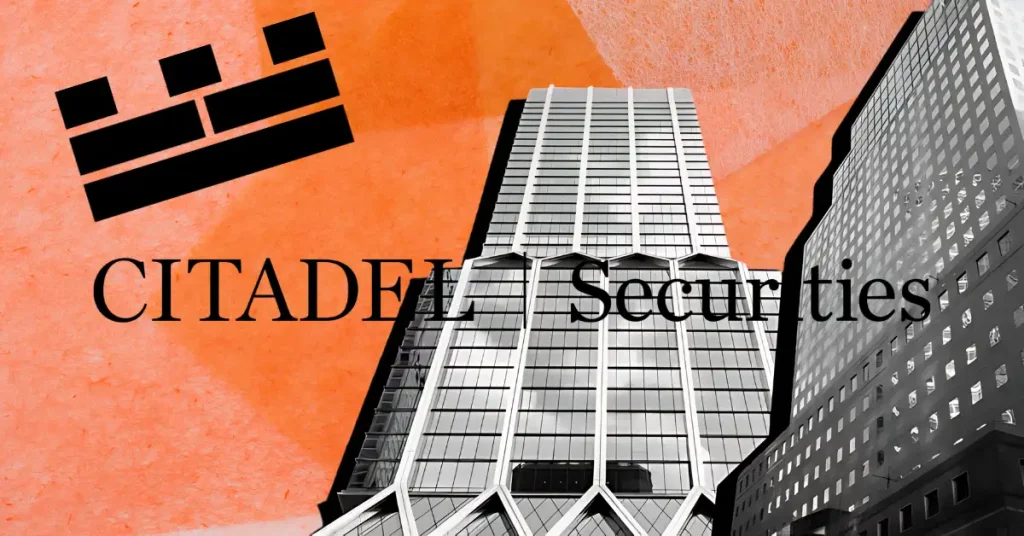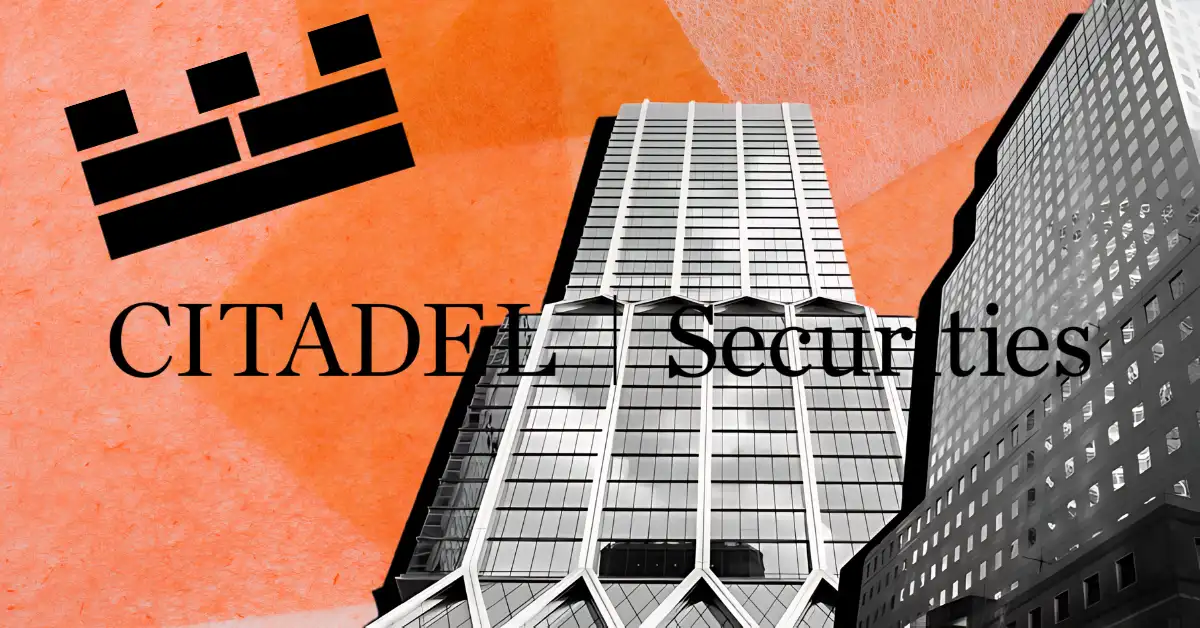
The Cautious Path to Tokenized Securities: Balancing Innovation and Regulation
The financial world stands at the precipice of a transformative shift with the rise of tokenized securities. This innovation, which involves representing traditional assets like stocks on blockchain technology, promises to revolutionize capital markets by enhancing efficiency, accessibility, and transparency. However, the journey toward widespread adoption is fraught with challenges that demand careful consideration. Citadel Securities, a leading market maker, has raised critical concerns about the potential risks of rushing into this new era without adequate safeguards. This analysis explores the nuances of tokenization, the valid apprehensions expressed by Citadel, and the path forward for regulators seeking to harness this innovation responsibly.
The Promise of Tokenization: A Double-Edged Sword
Tokenization represents a paradigm shift in how financial assets are managed and traded. By converting traditional securities into digital tokens on a blockchain, this technology offers several compelling advantages:
Enhanced Liquidity and Market Accessibility
Tokenized securities can be traded 24/7 across global markets, breaking down geographical barriers and time constraints. This continuous trading capability could significantly increase liquidity, benefiting both institutional and retail investors. Smaller investors, in particular, stand to gain from fractional ownership, which allows them to participate in high-value assets that were previously out of reach due to prohibitive minimum investment requirements.
Streamlined Operations and Reduced Costs
Blockchain technology promises to streamline the clearing and settlement processes, reducing operational inefficiencies and costs. The decentralized nature of blockchain can minimize the need for intermediaries, leading to faster transactions and lower fees. Additionally, the transparency inherent in blockchain can enhance market integrity by providing a verifiable record of all transactions.
Fostering Innovation in Financial Products
Tokenization opens the door to new financial products and investment opportunities. By enabling the creation of complex financial instruments on blockchain, it can spur innovation in areas such as structured products, derivatives, and even new asset classes. This innovation could lead to more efficient capital markets and greater investor participation.
However, these benefits come with significant risks that cannot be overlooked. The rapid adoption of tokenized securities without proper safeguards could lead to market disruption, regulatory arbitrage, and investor confusion. Citadel Securities’ warnings highlight the need for a balanced approach that prioritizes market stability and investor protection alongside innovation.
Citadel’s Concerns: Navigating the Risks of Tokenization
Citadel Securities has raised several critical concerns about the potential pitfalls of a rushed rollout of tokenized securities. These concerns underscore the need for a cautious and deliberate approach to regulation.
Liquidity Fragmentation and Market Disruption
One of Citadel’s primary concerns is the potential for tokenization to fragment liquidity, creating separate pools that are inaccessible to traditional institutional investors. This fragmentation could undermine the efficiency of price discovery and increase market volatility. Institutional investors, such as pensions and endowments, rely on liquid markets to manage risk effectively. If liquidity shifts to unregulated or less regulated platforms, it could destabilize traditional markets and harm retail investors who depend on institutional participation for market stability.
Regulatory Arbitrage and Unfair Competition
Citadel warns against granting broad exemptions for digital assets that resemble traditional securities. Such exemptions could create opportunities for regulatory arbitrage, where companies issue tokens primarily to avoid compliance costs rather than to achieve genuine innovation. This could lead to an uneven playing field, where some companies gain a competitive advantage simply by operating in a less regulated environment. Additionally, it could trigger a “race to the bottom” among regulators, as jurisdictions compete to offer the most lenient rules to attract tokenized securities issuers.
Investor Confusion and Risk
The 24/7 trading nature of tokenized securities could confuse investors, particularly retail investors who may not have the expertise or time to monitor their investments continuously. The fractionalization of assets, while beneficial in some respects, could also lead to impulsive decision-making based on short-term price fluctuations. Investors may not fully understand the implications of owning a small fraction of an asset, leading to potential losses and market instability.
Impact on Traditional IPOs
Citadel expresses concern that tokenized securities could divert capital away from traditional IPOs, undermining the IPO market’s role in capital formation. IPOs are crucial for companies to raise funds for growth and innovation. If tokenized securities siphon capital away from traditional IPOs, it could have negative consequences for the broader economy, limiting the availability of funds for new and growing businesses.
Custody, Collateral, and Liquidation Challenges
The secure custody of digital assets remains a significant challenge. The risk of loss or theft is a real concern if proper security measures are not in place. Additionally, the volatility of crypto assets can pose challenges for collateral management. If tokenized securities are used as collateral for loans or other financial instruments, a sudden price decline could trigger margin calls and lead to a cascade of liquidations, further destabilizing the market.
The Path Forward: A Balanced Regulatory Approach
To harness the benefits of tokenization while mitigating its risks, regulators must adopt a cautious and deliberate approach. The SEC should prioritize the development of a comprehensive regulatory framework that addresses the key challenges highlighted by Citadel Securities.
Clarity on Regulatory Status
The SEC must provide clear guidance on the regulatory status of tokenized securities, ensuring that they are treated consistently with traditional securities. This clarity will help market participants understand their obligations and reduce the risk of regulatory arbitrage.
Robust Custody and Security Standards
To protect investors from the risk of loss or theft, robust custody and security standards must be established. This includes implementing best practices for the safekeeping of digital assets and ensuring that custodians are held to high standards of accountability.
Disclosure Requirements
Tokenized securities issuers should be subject to the same disclosure requirements as traditional companies. This will provide investors with the information they need to make informed decisions and reduce the risk of fraud and manipulation.
Enhanced Market Surveillance
The SEC must enhance its market surveillance capabilities to detect and prevent fraud and manipulation in the tokenized securities market. This includes monitoring trading activity, identifying suspicious patterns, and taking swift action to address any irregularities.
International Coordination
Given the global nature of crypto markets, international coordination is essential to prevent regulatory arbitrage and ensure consistent enforcement. Regulators must work together to develop harmonized standards and share information to maintain market integrity.
Formal Rule-Making Process
Citadel’s recommendation for a formal rule-making process, rather than ad-hoc measures, underscores the importance of a well-considered and transparent approach. This process should involve input from all stakeholders, including industry participants, academics, and consumer advocates, to ensure that the final regulations are both effective and fair.
Conclusion: A Cautious Embrace of the Future
Tokenization holds immense potential to transform the financial landscape, but its successful integration requires a measured and thoughtful approach. Citadel Securities’ cautionary tale serves as a valuable reminder that innovation should not come at the expense of market integrity and investor protection. The SEC must resist the urge to rush forward and instead prioritize the development of a robust regulatory framework that paves the way for a safe, efficient, and equitable future for tokenized securities. By proceeding with caution and engaging in meaningful dialogue with all stakeholders, the SEC can ensure that tokenization fulfills its promise without creating unintended consequences. The path forward is not a sprint but a marathon, one that demands patience, collaboration, and a steadfast commitment to protecting the interests of all market participants.





